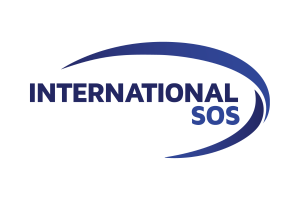Deputy Medical Director
Houston, TX, US
Role Summary
The Regional Medical Director (RMD) works as a part of the Medical Services department within the Government Medical Services business and is responsible for providing medical leadership and expertise to all projects. Specifically, the Regional Medical Director (OCONUS) is responsible for overseeing patient care standards at all sites and for all clinicians within the assigned programs, ensuring that clinical staff deliver the highest quality of medical care and that all policies and procedures are in place and correct. The RMD (OCONUS) GMS is also responsible for assisting in the design of clinical solutions for new projects and proposals. The RMD (OCONUS) works directly with the Medical Director (GMS) in performing the following:
Duties and responsibilities:
Provides direct oversight and coordination of clinical governance at all project locations, adhering to site specific and regional policies and procedures.
Assists the Medical Director (GMS) with all aspects of clinical governance across all assigned GMS programs.
Provides medical direction and administration including, but not limited to, developing medical policies, protocols, and procedures.
Initiates, enables, and monitors quality improvement programs and initiatives.
Reports incidents and accidents and near misses and works with GMS Team to formulate an action plan to resolve and prevent them and mitigate identified risks and hazards.
Initiates and improves methodologies for collecting anonymised statistical data regarding clinical performance.
Participates in physician leadership committees and training initiatives across the North American group of physicians and International SOS more broadly.
Acts as a liaison for International SOS (GMS) with all relevant government agencies, contractors and local/regional medical facilities.
Job Duties
Comply with health & safety standards consistent with the requirement to follow such procedures and regulations as may be laid down by the company, its client or the host state including.
Prohibition of the abuse of alcohol and narcotics or intoxicating substances on site
Mass Casualty and fire response drills
Absolute familiarity with and compliance with company policies and such procedures that are pertinent to the role and to good clinical care, including but not limited to:
Consent, confidentiality, and appropriate handling of healthcare records in adherence to HIPAA/patient confidentiality laws. Clinical staff must ensure that they understand their professional, legal, and ethical responsibilities as set out in M-1305 Control of Medical Records, M1308-Standards for Health Record Keeping, and M-2527 Informed Consent.
Maintaining and improving clinical quality through audit and quality improvement activity as described in M-1602 Clinical Audit, M-1604 Quality Assurance and Improvement and other medical site related documents.
Safe and appropriate use of medication. All staff involved in prescribing, dispensing or administering medication are to be familiar with M-3102 Prescribing and Dispensing Medicines, M-3105 Treatment of Expired Medication, and M-2213 Medication Management and to understand that they are responsible for their actions, non-actions, and omissions at all times.
Clinical notifications. All staff must be aware of how to raise significant events, patient safety incident reports, and escalate clinical incidents that meet the criteria set out in M-2008 Clinical Notification Requirements.
Clinical governance. Clinicians should understand their role in the organisation’s clinical governance programme, as described in M-200 Clinical Governance Policy.
Nearest Major Market: Houston

